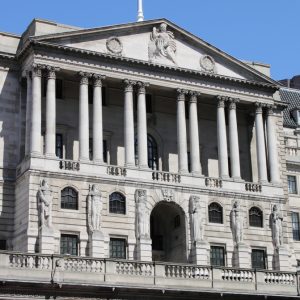
The central bank has been under pressure to increase the rate in light of rising inflation over the last few months. This was heightened yesterday as inflation rose to 5.1 per cent, the highest in a decade and significantly above the BoE’s target of two per cent.
Although the base rate was maintained at 0.1 per cent last month against market expectations, policymaker Michael Saunders said he voted to raise it to 0.25 per cent at the time and hinted that subsequent increases would be imminent.
The base rate has not gone up since August 2018, when it was increased from 0.5 to 0.75 per cent. It was held at that level until March 2020 when it dropped to 0.25 per cent then again to 0.10 per cent.
At this month’s meeting, the Monetary Policy Committee (MPC) voted to raise the rate with a majority of 8-1. Silvana Tenreyro was the only member who voted to keep it at 0.10 per cent.
It said it expected inflation to remain around five per cent through the majority of winter before peaking at around six per cent by April 2022. It is then predicted that CPI inflation would fall in the second half of last year.
The MPC said although the Omicron variant was likely to impact near-term economic activity, raising the rate was “warranted” as the impact of the virus on medium-term activity was uncertain.
A surprise change
Kevin Roberts, director of Legal and General Mortgage Club, said: “Whilst last month a rise was expected, consensus appeared to be for the status quo this month, therefore this decision once again comes as a surprise.
“It would appear the need to tackle rising inflation outweighs the many other factors currently at play. However, it’s important to put any rise in context: this is an increase from a historic low and will primarily help to give the central bank the option to reduce rates again, should it need to inject more life into the economy next year.”
Annabelle Williams, personal finance specialist at Nutmeg, said: “The Bank of England’s economists previously predicted inflation could reach a worrying five per cent by spring next year, but on Wednesday data showed that the rate of price rises already breached that level in November.
“These rapid price hikes have come at a time when the tax burden is increasing and the worsening Covid situation makes the outlook for businesses and employment uncertain.
“It’s a toxic mix and the Bank of England has been forced into taking action by raising interest rates before the economy takes a turn for the worse.”
Effect on mortgage rates
Roberts said while base rate changes would naturally impact mortgage prices, homeowners should be reassured that the record low and lender competition should keep any increases modest.
Williams added: “People tend to fear higher interest rates as it makes borrowing more expensive. But we ought to bear in mind that this is a small increase and rates are not going back to anything like ‘normal’ levels any time soon.”














